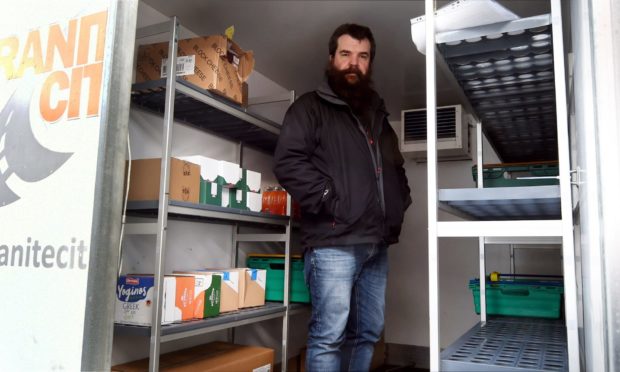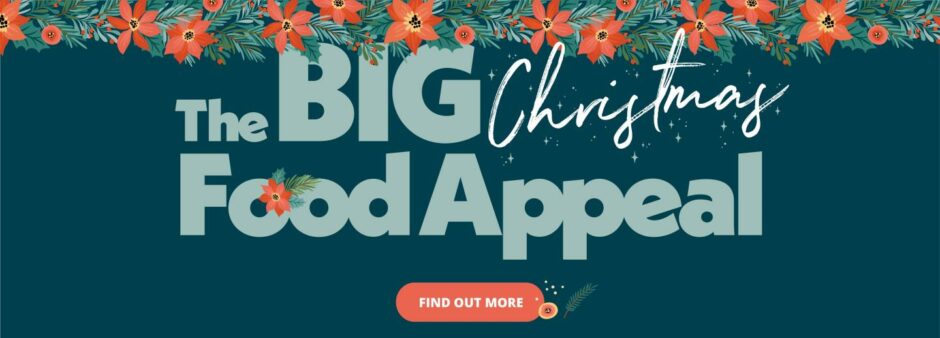As inflation hits a 10-year high, households across the north-east are being faced with the choice of heating or eating to make it through the festive period.
Inflation rose to 5.1% last month, hitting a new decade high as the cost of living squeeze on households intensified.
The consumer prices index (CPI) measure of inflation in November was up from 4.2% in October and well ahead of expectations that it would hit 4.7%.
It has not been higher since September 2011.
People in Aberdeen are ‘scunnered’
Aberdeen charity Instant Neighbour has seen a drop in donations to its foodbank.
Community connector and manager of the foodbank Evan Adamson believes the rising cost of food is to blame and families are facing an impossible decision.
He said: “The choice between heating and eating has been a issue for a while and something a lot of families we see are dealing with.
“The cost of inflation obviously means we are going to see more people falling in to that. But also the pressures on fuel and the further rising costs.
“The other side of it is the cost of inflation is also having an effect on donations to the foodbank.
“We are seeing a drop in donation because food is more expensive and that is understandable.
“We see a rise in requests yet a drop in donations which makes for complications.
“It also affects families that would want to help.
“What they would normally throw in to their shopping baskets on a weekly or monthly basis has shrunk and that has a knock-on effect on the food banks as well.”
Uncertainty causing panic and worry
Mr Adamson believes the uncertainty of what’s to come with regards to further rising costs is putting a strain on many families across the north-east.
He said: “It’s all completely open-ended and causes panic and fear.
“People come to us because they don’t know where to turn for help.
“The people who come to see us normally generally manage throughout the year but Christmas puts an extra strain on young families or those living near the poverty line.
“They don’t know what’s round the corner.
“People are very concerned and sick of it all. There’s a definite feel of scunnery at the moment in Aberdeen.”
He said: “We know many people are struggling to pay for the essentials right now.
“With an increase in the cost of living and the recent removal of the Universal Credit uplift, many households are having to choose between paying energy bills and having food on the table.
“Just a month after the stop of Universal Credit uplift, 34% of our clients who are affected by this told us they have already had to go without essentials and 49% expected to fall behind on their bills in the next 6 months.”
Fuel, clothing and food prices surge
Fuel, food, clothing and energy bills have all increased.
Scottish Friendly savings specialist Kevin Brown said: “Our research shows many Brits have taken steps to reduce their outgoings and make their money last longer, such as shopping in cheaper stores and eating out less.
“But worst of all, with food and energy bills on the up, more than one in three families are nervous they will be unable to pay for essentials this winter.”
EY Item Club chief economic advisor Martin Beck said: “CPI inflation accelerated from 4.2% in October to 5.1% in November, its highest rate since September 2011.
“November’s pickup was largely down to two factors. First, at 4%, core inflation was much higher-than-expected.
“Second, petrol prices rose by 5.1% month-on-month after a rise in the oil price, which contributed around 0.2 percentage points to the pickup in inflation between October and November.
“The EY Item Club expects inflation to remain at, or slightly above, current rates for the next few months.
“But the EY Item Club then expects inflation to slow significantly as we move through the second half of 2022 and into 2023.”
The Press and Journal, Evening Express and Original 106 have teamed up to tackle food poverty this Christmas.
The Big Christmas Food Appeal aims to raise awareness of the plight people across Grampian and the Highlands face every week and dispel some of the myths surrounding foodbanks while encouraging readers to do what they can to help.


